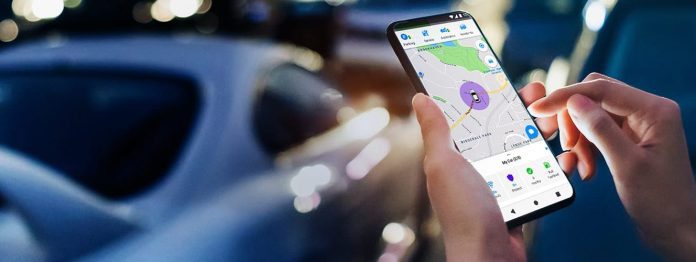“Cars are the ultimate mobile device,” said AT&T this week, as it announced another two million connected cars in Q3, as well as an expanded deal to supply connectivity to heavy-duty Daimler trucks outside of North America, and restated its plans for 5G cellular vehicle-to-everything (C-V2X) technology.
AT&T said its base of fleet vehicles for small business, enterprise and government customers now stands at over three million. Its total base of connected vehicles is 24 million in North America. The company deals with 29 automotive brands, including most car and van marques.
“Cars are the ultimate mobile device. Sensors are sharing data that improve(s) vehicle maintenance, enhance(s) safety and help(s) check insurance rates. The foundations for an autonomous future are already in place,” said Chris Penrose, president of IoT solutions at AT&T, in a blog post.
“The next chapter will be transformative – and connectivity will play an essential role… 5G will open the door to new business models and new experiences.”
AT&T is working with Ford, Qualcomm and Nokia to test-drive C-V2X technology with 4G LTE and, eventually, 5G, and develop ‘intelligent transportation system’ (ITS) technology for sharing data between transportation endpoints, such as cars, bikes and pedestrians.
The algorithms that govern autonomous vehicles can be continually improved as automated vehicles encounter new driving situations. This ability for automated vehicles to learn from other vehicles depends on 5G connectivity, said Penrose. “This is where our 5G network comes into play,” he said.
He explained: “5G will allow for the distribution of processed data to meet and exceed the needs of the automated vehicle. For those improvements, data must be collected, analysed, and synthesised into improved algorithms to be distributed to other vehicles.
“5G multi-gigabit speeds, distributed edge networks, and low-latency services can help these capabilities to become a reality in years to come. And self-driving cars and 5G will ultimately usher new opportunities for in-vehicle entertainment and engagement when drivers have more time on their hands.”
Research from Gartner says connected car shipments will reach 80 million units in 2021, increasing at 36 per cent per year on average, from 17 million in 2016. In total, 305 million vehicles will be connected in some form by 2021. Cellular streaming will be the leading feature, claims Gartner.
Meanwhile, ABI Research forecasts that eight million vehicles will roll off assembly lines with automated driving capabilities in 2025.
AT&T is working with car makers on a suite of security solutions to help protect cellular connectivity to the vehicles. The solutions include protecting data and text messaging paths into vehicles. It has completed a proof with Swedish vendor Ericsson to explore a potential blockchain solution to provide additional security to vehicles through the validation of the device firmware or software.
“Security solutions like this will play a critical role in driving widespread adoption of connected and automated vehicles,” said Penrose.
The company has its own Drive Studio innovation centre in Atlanta to test-drive telecoms. It is also working with the American Centre for Mobility (ACM), an automotive testing facility outside of Detroit, as the connectivity partner. It will build a test network at the site to enable testing of cellular technologies for automated driving, including 4G LTE and 5G.
AT&T is also engaged variously with industry on future mobility solutions as part of the 5GAA, he cross-industry association between the cellular and automotive markets, the Automotive Edge Computing Consortium, between car makers, tech companies and telcos, and the Auto-ISAC centre, which focuses on automotive cybersecurity.
The new deal with Daimler Trucks will see AT&T expand its support into Australian and European markets. It already provides connectivity to DTNA’s Detroit Connect platform, installed on all new Freightliner Cascadia trucks, across the US and Canada.
Jason Krajewski, director of connectivity at Daimler Trucks North America, commented: “We’ve had tremendous success in launching our proprietary connected vehicle platform with AT&T. Working with AT&T, we will expand our connectivity services and connected vehicle portfolio to more vehicles and more regions.”
Penrose added: “Broadening our collaboration outside North America for the first time will bring the benefits of efficiency, safety and performance to customers on a global scale.”

